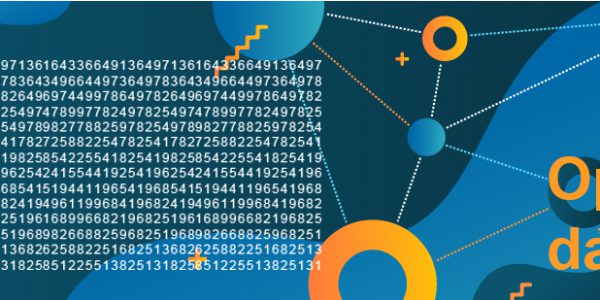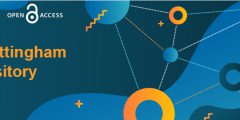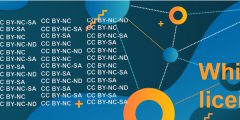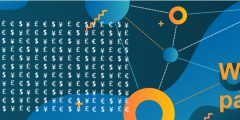Open Access week 2019 : Open science data?
October 25, 2019
So far this week, I’ve been writing about open access publishing of academic manuscripts. But the data itself behind those articles is an increasingly important community resource. Open science data promotes public access to observations and results of scientific activities so that anyone can analyse and reuse, without restrictions from copyright, patents or other controls. …
Open Access week 2019 : Nottingham E-Repository and ResearchGate
October 24, 2019
Here at UNM, we’re keen for you to make Nottingham research outputs available to a global audience. Nottingham ePrints is a searchable digital archive which provides the green route to open access for research outputs (articles, conference papers etc produced by University of Nottingham authors), and theses submitted for University of Nottingham research degrees. You can deposit …
Open Access week 2019: Which license?
October 23, 2019
In Monday’s blog, I explained that when you publish by traditional routes, as an author you typically grant all your rights as author and copyright owner to the publisher. It doesn’t belong to you anymore. A benefit of full open access publishing is that the copyright on your article is retained by you. You simply …
Open Access week 2019: Who pays?
October 22, 2019
Publishers are businesses that make money out of managing academic journals. Academic publishers have two main income streams (excluding advertising revenue). The first income stream is from reader subscriptions. For example, our library at UNM pays publishers through annual journal subscriptions so that it can make them accessible to academic staff and students. This is …
Open Access week 2019: Green or Gold routes
October 21, 2019
When you publish by traditional routes, as an author you typically grant all your rights as author and copyright owner to the publisher. It doesn’t belong to you anymore. This means that if you want to do anything with your work, such as making it available on a website (like ResearchGate) or re-use a figure …






Recent Comments